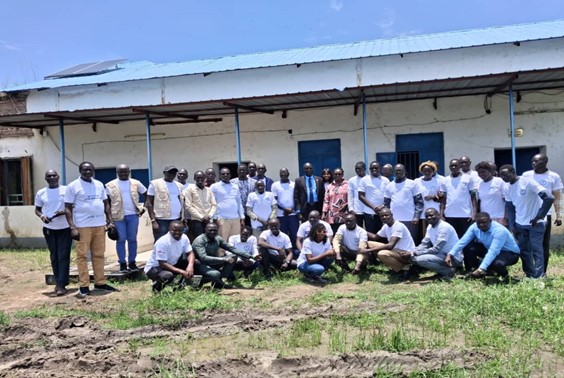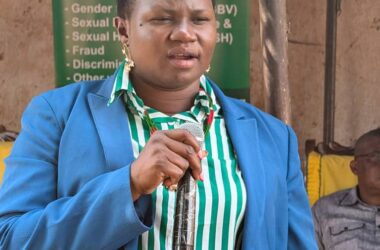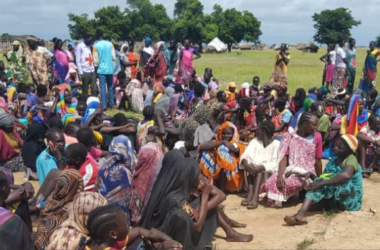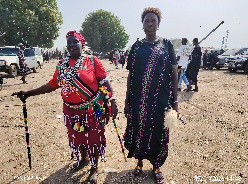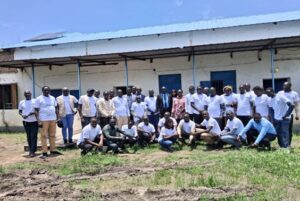
By Kei Emmanuel Duku
Insecurity and a lack of funding are hindering efforts to combat neglected tropical diseases (NTDs) in Upper Nile State, according to Dr. Isaac Wango, Director General of the State Ministry of Health.
Dr. Wango made the remarks at the launch of a mass drug administration (MDA) for trachoma in Malakia town. Addressing health experts, he explained that the upcoming MDA will target specific areas and beneficiaries affected by trachoma, based on factors such as funding, security risks, and infection statistics. The program will be implemented in Upper Nile State and its surrounding areas.
He also emphasized that proper sanitation is crucial for eliminating certain NTDs, such as trachoma. “Without WASH (Water, Sanitation, and Hygiene) activities, we cannot do most of the things. For trachoma, you just need a small quantity of water. You wash your eyes, and then you will not transmit it to other people,” he said.
Dr. Wango also noted that other diseases, such as onchocerciasis (river blindness), lymphatic filariasis (elephantiasis), and schistosomiasis (snail fever), can be transmitted through dirty or contaminated water. He identified hotspot areas for these diseases as Renk, Bentiu, and Melut, which are all along river belts.
Neglected tropical diseases (NTDs) are a diverse group of 20 diseases and disease groups that are prevalent in tropical and subtropical regions. These diseases primarily affect impoverished communities, where a lack of access to clean water, sanitation, and healthcare makes them particularly vulnerable. They are often called “neglected” because they receive less attention and funding than other major diseases like HIV/AIDS, tuberculosis, and malaria.
The World Health Organization (WHO) and other international bodies have programs aimed at controlling, eliminating, and eradicating these diseases through mass drug administration, improved sanitation, and vector control.
Examples of NTDs include Trachoma which is a bacterial infection that causes a roughening of the inner surface of the eyelids leading to blindness; another NTD is Onchocerciasis (River Blindness) a parasitic disease transmitted by blackflies, causing skin and eye disease that can lead to permanent blindness.
Others include Lymphatic Filariasis (Elephantiasis) and a Schistosomiasis (Snail Fever) parasitic disease transmitted by mosquitoes, causing severe swelling of the limbs and other body parts and a parasitic disease transmitted by freshwater snails, causing internal organ damage respectively.
John Bebe, Amref Health Africa’s Project Manager for NTDs, reiterated Amref Health Africa’s commitment to eliminating the 19 NTDs in the country through a partnership with the National Ministry of Health and other health partners. He stated that trachoma remains a major health concern for the people of Upper Nile.
Additionally, Yak Yak Bol, Director of Primary Health Care for NTDs at the National Ministry of Health, stated that Upper Nile State and Malakia town are among the areas most affected by trachoma. He said that a single MDA will be conducted in the affected areas and that once more funding is secured next year, a trachoma impact survey will be conducted to see if the country has reached the WHO-required threshold. This survey will also be conducted in other areas, such as Malut, where two to three additional rounds of MDA are needed.
Bol added that the National Ministry of Health cannot tackle this issue alone and needs support from state and county health departments. He acknowledged that the ongoing conflict in the Upper Nile region poses a significant challenge, making it difficult to carry out interventions in some areas. He said that some counties will be left out of the MDA due to insecurity but that the program will be rolled out once the situation improves.

